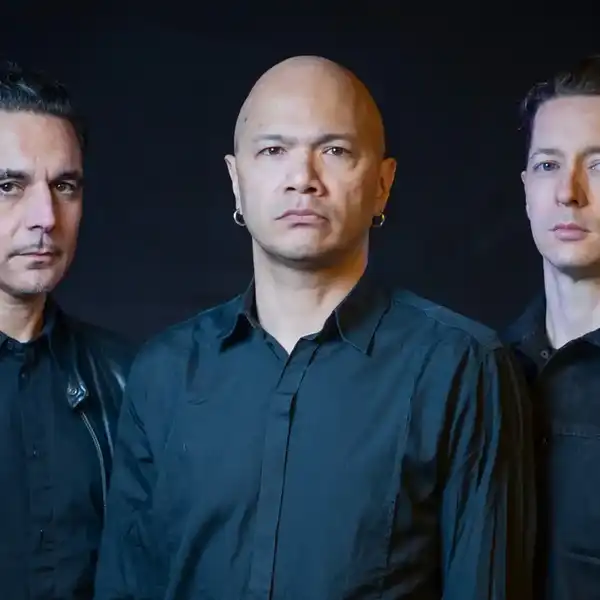'The Late Stage Empire Dementia' That's All Art Bergmann
For more than four decades, Canada’s Art Bergmann has done things his way. And nowhere is that more evident than on his most recent record, Late Stage Empire Dementia, as Ken Kelley investigates.

By Ken Kelley
For more than four decades, Canada’s Art Bergmann has done things his way. And nowhere is that more evident than on his new record, Late Stage Empire Dementia, released on May 21.
With his newest record, Bergmann storms forth from the gates with an astute awareness of the world around him. If his 2016 effort The Apostate served as a big picture view of human history, Late Stage Empire Dementia is a shot across the bow of the surreal, chaotic nature of the last four years.
But amid the chaos of a global pandemic, the U.S. election and the Black Lives Matter movement last year, the singer-songwriter capped off the year in an unexpected way: a rapt Bergmann was awarded the prestigious Order of Canada, an honour bestowed upon some of the country’s biggest and most influential cultural figures.
That Bergmann would be considered an influential cultural figure is no hyperbole. He has consistently confronted uncomfortable truths with his music and the eight songs featured on Late Stage Empire Dementia are no exception to that rule as Bergmann takes on political corruption, the dual unchecked epidemics of guns and drugs, as well as the sobering plight of refugees yearning for a better life.
Asked if he sees himself as a torchbearer amidst an abundant sea of disposable musical acts that lack the substance to ensure they’ll enjoy the kind of longevity in their careers as he has, Bergmann goes one better:
“I think a dripping candle is a more appropriate comparison,” he says, laughing. “But there should be people in the streets screaming to the high heavens about the world hurtling toward the edge of the cliff. We’re in the midst of a climate crisis that isn’t going to go away and too few people seem to care about it.”
Bergmann shares that writing for Late Stage Empire Dementia actually began when he was putting the finishing touches on The Apostate. He says the hyper-dystopian nature of the world proved to be the perfect fodder for drawing new material out of him.
“In the middle of mixing The Apostate and playing shows, everything in my head was moving at a ferocious speed. There is a lot of comedians and other creatives that said you couldn’t write this shit about the state of the world and they’re right. We’re in the midst of living through a Philip K. Dick novel.”
Recorded live off the floor, the seeds for Bergmann’s new album were planted pre-pandemic at Lorrie Matheson’s studio in Calgary before being completed at Russell Broom’s Broom Closet studio in Vancouver. Given Broom’s consistently hectic schedule, Bergmann isn’t shy in expressing his gratitude at having Broom come on board to help add some finishing touches and to help oversee the album’s mixing process.
“Russell is a busy guy, but he took time each week to tinker away at this record and I’m so grateful for his involvement. I’m not big on technology; I refuse to keep up on the latest applications and whatnot, but I have to admit it makes for an easy way to get a record completed in the midst of a worldwide pandemic.”
Among the many highlights on Late Stage Empire Dementia is the guest appearance of MC5 co-founder and guitarist Wayne Kramer on the track Christo-Fascists. Bergmann says Kramer’s involvement on the album was a total “happy accident” and came about as a result of a brief association with Porterhouse Records out of the U.S.
“It looked as though I was going to release this new record through Porterhouse but they were more interested in putting out my older material before this album and I was insistent that the new record come out first because it’s very much music for now. But during the brief period I was associated with Porterhouse, they had Wayne Kramer working on a couple of projects for them and so that’s how he ended up on Christo-Fascists. I never even met him but given his band’s outspoken nature and involvement with the Black Panthers back in the late 60’s, that was the perfect song to have Wayne make some noise on.”
Pandemic notwithstanding, a return to the live stage is unfortunately not in Bergmann’s future. Nonetheless, Bergmann insists that being in a position to continue releasing new music and art into the world, and having an audience that remains keen to hear those observations, is nothing he’ll take for granted.

















